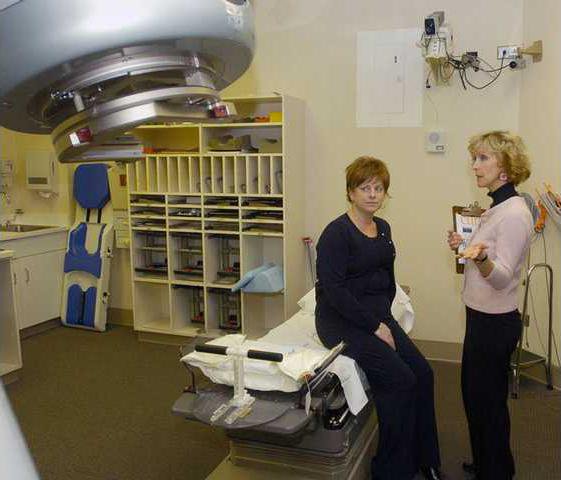0324canceraud
Lisa Mahon talks about her job as a "navigator" for breast cancer patients at Northeast Georgia Medical Center.Being diagnosed with cancer is like being thrown into a maze and not knowing how to find your way out.
That’s why Northeast Georgia Medical Center’s Cancer Center has established a "patient navigation" program. The hospital has hired two "navigators" who help patients get the services and resources they need.
Tom Enright, the hospital’s director of oncology services, said the concept is a growing trend among cancer programs.
"We’ve been looking at it for well over a year," he said.
There needs to be a central person who coordinates all aspects of a patient’s care, Enright explained.
"The typical cancer patient has a radiation oncologist, a medical oncologist, a surgeon and a primary care doctor," he said. "There are so many decisions to be made."
The hospital’s first navigator is Lisa Mahon, who started work Feb. 11. A registered nurse from Habersham County, Mahon spent most of her career working in obstetrics and gynecology. She was chosen for her expertise in women’s health, because in her new job she works exclusively with breast cancer patients.
Enright said the hospital wanted a specialized navigator because breast cancer is one of the most common types of cancer, and women with the disease seem to be particularly appreciative of the navigator service.
But the cancer center wants to offer the service to all of the approximately 1,200 patients it treats each year. So the hospital has hired a second navigator, Elida Lopez, who will begin work in early April.
Lopez’ position was made possible through a grant arrangement with the American Cancer Society, which will pay half her salary.
Enright said one of the requirements of that program is that the navigator must be bilingual.
He said a Spanish-speaking navigator will be extremely helpful for the growing number of Latino cancer patients.
"It’s hard enough to understand medical terminology anyway. You add another language on top of that, and it’s just insurmountable," he said.
Mahon said the navigator program is an idea whose time has come. It offers each patient a "go-to" person, so they don’t have to search for someone who can answer all their questions.
"(Previously), nurses at the doctors’ offices were trying to pick up the slack," Mahon said.
But while doctors and nurses are well-meaning and compassionate, they simply don’t have the time to do what a navigator does.
"I basically come in at the time of the surgical appointment, after the (breast cancer) patient has had an abnormal mammogram," she said. "I see them at the surgical appointment, on the day of surgery and for post-op. Then I’m there when they start radiation. I try to make as many appointments as I can."
Mahon’s job is to educate, to listen and to reassure.
"We talk about how the treatment is affecting their employment, their relationships," she said. "With breast cancer, there are issues of femininity, sexuality, what their partner will think."
Mahon also talks to patients about side effects of their treatment, and what they can do to make themselves feel better.
"I tell them about nutrition and exercise," she said. "If I don’t know the answer to a patient’s question, I find out and get back with them."
She also helps schedule appointments.
"I try to coordinate it so patients can have their treatment and a doctor visit on the same day, to make fewer trips," she said.
Mahon recognizes that cancer affects every part of a patient’s life, so she deals with nonmedical matters as well.
"Helping with financial issues is a huge part of being a navigator," she said. "I try to find resources they can use, such as reduced-fee transportation or a pharmaceutical company that can donate medicine. Sometimes I have to get creative."
Eventually, Mahon expects to have a caseload of up to 350 patients, though many will be in their post-treatment phase. She approaches each one as an individual.
"I write notes to myself so I can remember personal details on each patient," she said.
Mahon also helps guide patients through one of the most difficult phases of cancer, when it’s time to acknowledge that treatment isn’t working.
"Sometimes the plan of care is that they’re going to go to heaven," she said. "Not everyone with cancer gets better. If that happens, I work with hospice."
The navigation program is free of charge, and the service is available both for patients and their families.

